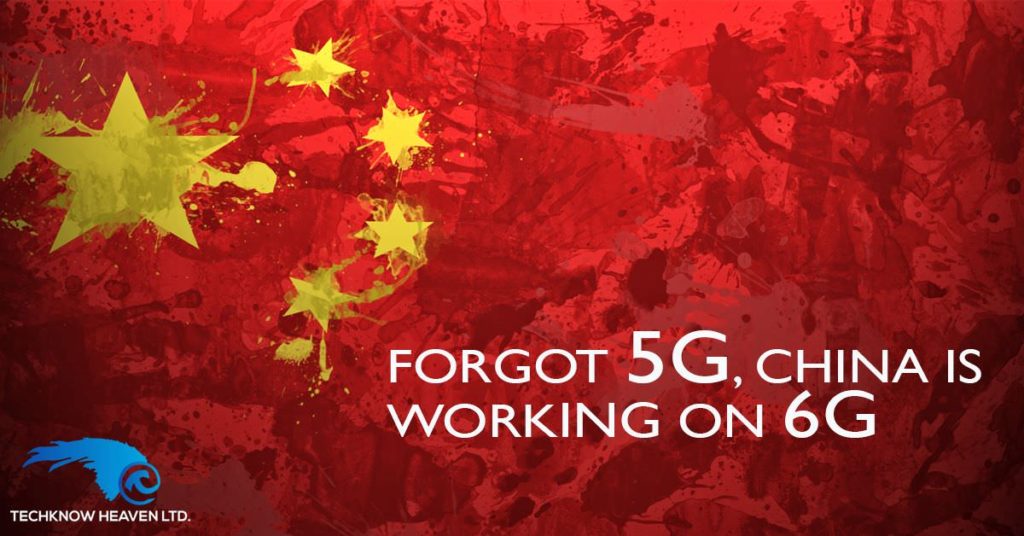“Willkommen” T-Mobile! : Microsoft, Time to “Capture” an ISP and MNO “Advancing 5G”

In the end, it all comes down to “who controls the lines of communication.”
I would venture to say the T-Mobile/Sprint proposed merger will go through. This is why:
*In the wake of 5G competition from China’s Huawei and ZTE, the market and U.S. government call for it.
*Current administration appears sympathetic to deregulation as DOJ is unwilling or unable to enforce existing laws.
*“Two of the FCCs top priorities are closing the digital divide in rural America and advancing United States leadership in 5G…T- Mobile and Sprint would substantially advance each of these critical objectives.” – Ajit Pai, FCC Chairman – Digital Trends
*“We are charged with making at least 100 Mhz of spectrum available below 8 Grz in the next few years. And I think if we want to make that happen we have to get moving right now.” – Jessica Rosenworcel (D) FCC Commissioner
Let’s also consider Mary Brown, Senior Director, Technology & Spectrum Policy at Cisco who recently stated, “One fact, by 2023, Cisco is projecting globally, 3.4% of mobile connections will be 5G. So, a lot of hype around 5G, but I think we need to keep in mind that it is going to take a while for that ecosystem to ramp up.”
Brown’s statement appears to support the idea that “Billions of Wi-Fi users will experience 5G services with or without 5G cellular capability” according to Vijay Nagarajan, VP Mobile Connectivity at Broadcom. Broadcom’s founders are the engineering brains whose products played a key role in making smartphones and Wi-Fi possible.
Speaking of IC’s and cellular capability raises the counter argument to Brown’s assertion. If we accept that 5G is 4 years out, then we also need to consider that tech moves at a different speed than other sectors. Take hyperscale computing and its impact on social media and tech companies. Brown, what are your stats for 2025 and 2029?
MICROSOFT’s history with ISPs goes back over two decades – CNET 1996 headline, “Microsoft bags another ISP.” Yet, unlike Google’s reported acquisitions of small ISPs, it appears that for some size does matter, “Microsoft said it is pursuing distribution deals with ISPs big and small to make Internet Explorer the default software users receive when they sign up for service.” But that was then. Microsoft, what have you done lately?

Microsoft – Time to think MACRO and play HARD
Gentlemen, have you taken a serious look at the T-Mobile/Sprint proposed merge? As the next generation of network technology and wireless communications is upon us, 5G and Wi-Fi 6, capturing a big ISP and MNO may be ripe for the taking, especially as open source is the name of the tech game.
Recall that just ten years ago, not all tech companies were “open.” Jason Pontin, former Editor at MIT Technology Review, pointed this out in 2009, “The Windows operating system, by contrast, is closed or “proprietary,” in the jargon of information technology: it is not portable and possesses limited interoperability.” This may have changed.
Just a decade ago, Microsoft did not have a social network. It appears that “fortune favors the brave” and those who capitalize on “open source” and A.I. According to Brand24, “Why Microsoft Bought LinkedIn and What Does It Mean”, Microsoft CEO states they “have a significant opportunity to accelerate LinkedIn’s growth…with Microsoft’s assets and scale.”
Leveraging the “virtual assistant” Cortana, LinkedIn will reportedly provide users “intel on your business relationships.” Or, intel on your competitors? Or, does Microsoft intend to sell the data to its business relationships?
Either way, timing is key especially in our current regulatory hungry times as I note in my paper Mergers and Acquisitions: When to Capture and When to Cut the Tree Where the Bird Nests. The economic and political underpinnings call for a revised game plan.
Microsoft, consider the U.S. renewed apprehension towards social media, networks, and tech companies on issues of privacy, security, and especially antitrust as the Wall Street Journal recently reported, “Federal antitrust enforcers and lawmakers are poised to scrutinize the largest technology companies for anticompetitive practices.” How will the E.U. respond?
It appears that for the E.U. antitrust concerns run second to commodities – gas. A year ago, Reuters noted “Russian gas giant Gazprom clinched a deal with EU antitrust regulators…avoiding fines in a case that has dragged on for seven years.” If a real utility can walk away unscathed, what can U.S. Legislators expect from social media networks labeled “utilities”? Microsoft is no stranger to facing E.U. wrath.
Recall Barovic v. Ballmer? Reuters reported that “the European Union levied its largest ever antitrust fine against Microsoft for breaking a legally binding commitment…” The case settled in January 2016. But there’s a “double-edge sword” to lengthy cases – its backfiring may negatively affect company stock. Just ask Apple about the Supreme Courts recent decision.
Sure, big corporations have the means to drag out cases while the public forgets – until the case reemerges in the public eye. But unlike the starry-eyed Americans who think themselves celebrities with countless “selfies” to be remembered, some in the E.U. Commission argue that Europeans want “the right to be forgotten.” With Microsoft’s acquisition of LinkedIn, it may wish to revisit Google’s resolve as to the EUs ruling on“delinking” material.
Horizontal and Vertical Mergers
Counsel, don’t lose sight of the fact that the “horizontal” merger between Disney-Fox required “a consent decree agreed to last August by Disney and the U.S. Department of Justice…on the divestiture of the 22 regional sports networks…” as reported by Dade Hayes, Finance Editor at Deadline.
Not surprisingly, the Disney-Fox merger put the DOJ “on the heels” of AT&T-Time Warner “vertical” merger. Microsoft, though it’s been two decades, you may recall that feeling. But more importantly, Disney’s previous attempt to purchase T-Mobil appeared to have ended with it relenting after “feeling the heat” from the DOJ. Thinking vertically, Microsoft may come away successfully as AT&T did.
Take heed of lessons of the past: Before cutting any deals consider divestitures DOJ may propose. Also, though E.U. citizens may demand their “right to be forgotten” the E.U. Commission does not forget its wins against U.S. tech companies. Or, is it the hundreds of millions U.S. dollars they remember? Be prepared for pay-outs.
Germany seems to be “nesting on the tree” it planted decades ago, Deutsche Telekom, parent to T-Mobile. Microsoft, time to think vertically and horizontally.
Yes, mobile communication is what the customer wants, but without the ISP and an MNO “advancing 5g,” you’re not getting the customer — No 5G, no tower, no communication, no competition. Or, as we say in Germany, “Du bist nicht im spiel, auf wiedersehen.”
Not to burst everyone’s 5G “bubble” but it looks like you’re all “on the heels” of China’s 6G.


Excellent pieces. Keep posting such kind of information on your site.
Im really impressed by your blog.
Hello there, You have performed a fantastic job.
I’ll definitely digg it and in my opinion recommend to my friends.
I’m confident they’ll be benefited from this site.
http://www.scece.org/bbs/board.php?bo_table=free&wr_id=9889
http://www.ankaraescrt.com/author/dawnaprisco/
https://www.v-risingwiki.com/index.php/User:PUUIvey726922898
https://www.anunciosentuciudad.es/author/sheenatorge/
https://wiki.bitsg.hosting.acm.org/index.php/Queen_Elizabeth_Dies
https://portpavement.com/index.php/User:RichCarlino6439
I’m gone to convey my little brother, that he should also pay a visit
this weblog on regular basis to obtain updated from newest news update.
Having read this I believed it was really enlightening.
I appreciate you taking the time and energy to put this information together.
I once again find myself personally spending a lot of time both
reading and posting comments. But so what, it was
still worthwhile!